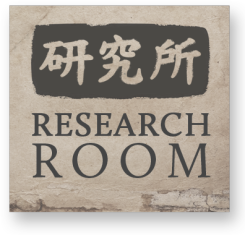Yongusil 94: Decoding the Sino-North Korean Borderlands
Sino-NK senior editors are excited to announce we have been working with Amsterdam University Press on an edited volume dealing with the issues and contradictions of the PRC-DPRK border. Our aim is to bring migration and economic issues into holistic dialogue. Here, we briefly introduce the project.
Onward Migration: Why Do North Korean Migrants Leave South Korea?
Many North Korean migrants seek final destinations beyond South Korea. Why is that? Reflecting upon several years worth of fieldwork in the United Kingdom, Dr. Jay Song shares what she learned about North Korean migrants who migrate onwards.
Yongusil 93: Socialism’s Influence on Syngman Rhee and the Founding of the Republic
Was Syngman Rhee as explicitly anti-communist as he is often portrayed? How prominent a role did ideology play in Rhee’s role as a statesman and founding father of the Republic of Korea? Historical documents indicate things are more complicated than commonly assumed. A new working paper in the Cold War International History Project (CWIHP) considers the evidence.
Yongusil 92: A New Perspective on the Evolution of South Korea’s Developmental State
Contrary to extant findings, evidence suggests the origins of South Korea’s industrial and economic transformation predated Park Chung-hee’s rise to power. A forthcoming piece for the Journal of Contemporary Asia argues that sweeping land reforms implemented in South Korea in the post-liberation period laid the foundations of the country’s economic development and industrial transformation.
Yongusil 91: New Frontiers in Korean Studies
The new Institute for Korean Studies at the George Washington University recently hosted a workshop for young researchers, “New Frontiers in Korean Studies: Korea and the World.” 10 young scholars presented their work, each pursuing new directions in understanding Korean history, politics, and society.
 The Research Room serves as the metaphorical “back room” of Sino-NK, visualizing the collective academic output of the organization’s members. Here readers are kept up-to-date with projects in progress and provided recaps of completed efforts. The Research Room also seeks to examine and reveal external analysis giving Sino-NK’s view of new conceptions, approaches, and methodologies. This section used to be called Yongusil, meaning “research room” in Korean.
The Research Room serves as the metaphorical “back room” of Sino-NK, visualizing the collective academic output of the organization’s members. Here readers are kept up-to-date with projects in progress and provided recaps of completed efforts. The Research Room also seeks to examine and reveal external analysis giving Sino-NK’s view of new conceptions, approaches, and methodologies. This section used to be called Yongusil, meaning “research room” in Korean.









